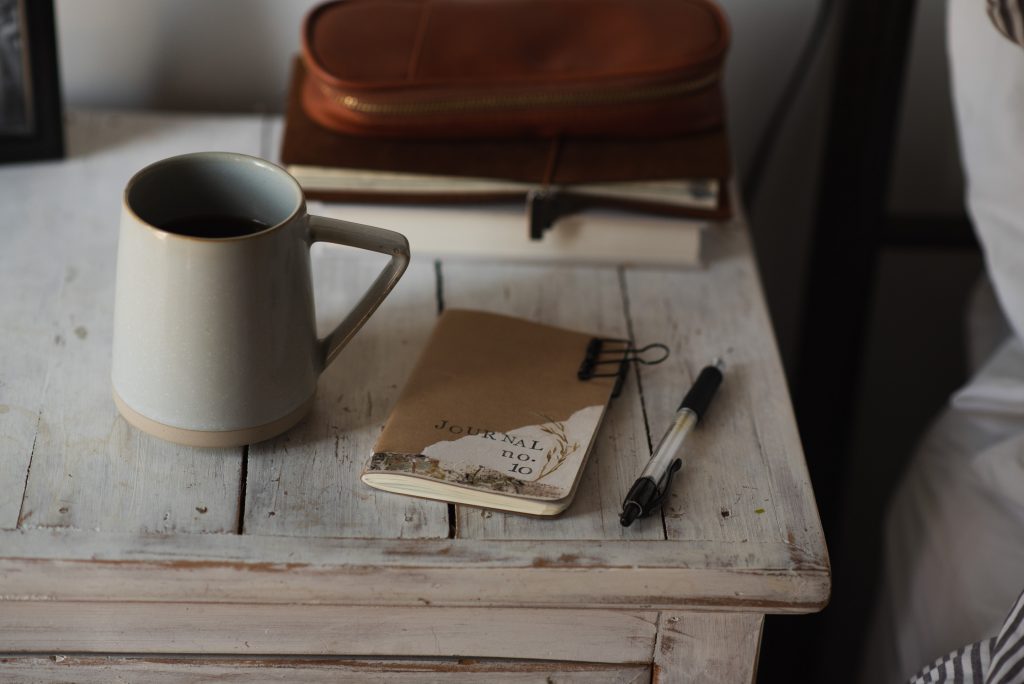
The term Morning Pages was coined by Julia Cameron. She’s known for her excellent workbook called The Artist’s Way and just one part of one chapter is on Morning Pages. (There’s also a shorter Miracle of Morning Pages as a Kindle version.) But it’s foundational to the rest of her ideas, and the one that seems most popular and enduring. A very basic description of the practice from Julia Cameron’s website is this: “three pages of longhand, stream of consciousness writing, done first thing in the morning”.
Pretty much every creative, writing, artistic, or teaching person on the internet has written an article on Morning Pages. So a quick search will give you lots of descriptions and tips if you’re not up for reading the book. This is one that I like. So I’m not here to add more description or give more tips. Or to tell you that the practice of Morning Pages has been life changing or has revolutionized my career. Neither of those is true. But it’s a journaling practice that I’ve kept up for a lot, a lot, of years. Since long before I came across The Artist’s Way. Something about it is useful and good. And from a definitively non-morning person (me), I think that’s a pretty strong endorsement.
Different styles of journaling work for different people. Maybe this one is for you?
At the point of the pen is the focus of the mind. ~
James Lendall Basford, Sparks from the Philosopher’s Stone, 1882
How I do Morning Pages
… and this is just my take on making it do-able. A Minimum Viable Practice, if you will.
- First, coffee. So technically I’m not doing them as the very first thing in the morning.
- I use a very tiny notebook. Three pages get filled up pretty quickly. Even so, sometimes I only fill up one or two pages. But other times I’ve written six or seven before I realize it. So I figure in the end it all evens out.
- I pre-decorate the pages.
- I write in semi-darkness, usually without my glasses on. So whatever it is I’m writing is most likely not even legible. Which brings us to my next point …
- I never ever read anything I’ve written, which Julia Cameron does recommend.
- Finally, I don’t do them every single day. It’s a practice, not perfection.
what’s in my morning pages
Brain drain is what Julia Cameron calls it, but not in a list or organized form, just whatever’s in my head gets written on the page.
Journaling. Straight up writing about what’s happening in life and in the world. Working out how to approach problems. Future things I’m thinking about. Past stuff I haven’t figured out yet. Things I don’t need to be giving attention to during the day. Sometimes it follows the format I talked about in this post.
Prayer. Because who am I really talking to when I’m spilling all my thoughts and questions onto the page but God?
Cast all your anxiety on him because he cares for you.
The Bible, 1 Peter 5:7
stationery in the photo
These two things are all you really need, plus
- skeleton clip (to keep it closed)
P.S. Full disclosure: I’m only about half-way through The Artist’s Way workbook … it’s twelve weeks of study and assignments. I do a week every once in a while, and it takes me a couple of weeks to finish
P.P.S. Fun fact, I bought my copy of The Artist’s Way in a used book shop in Parry Sound, ON.
